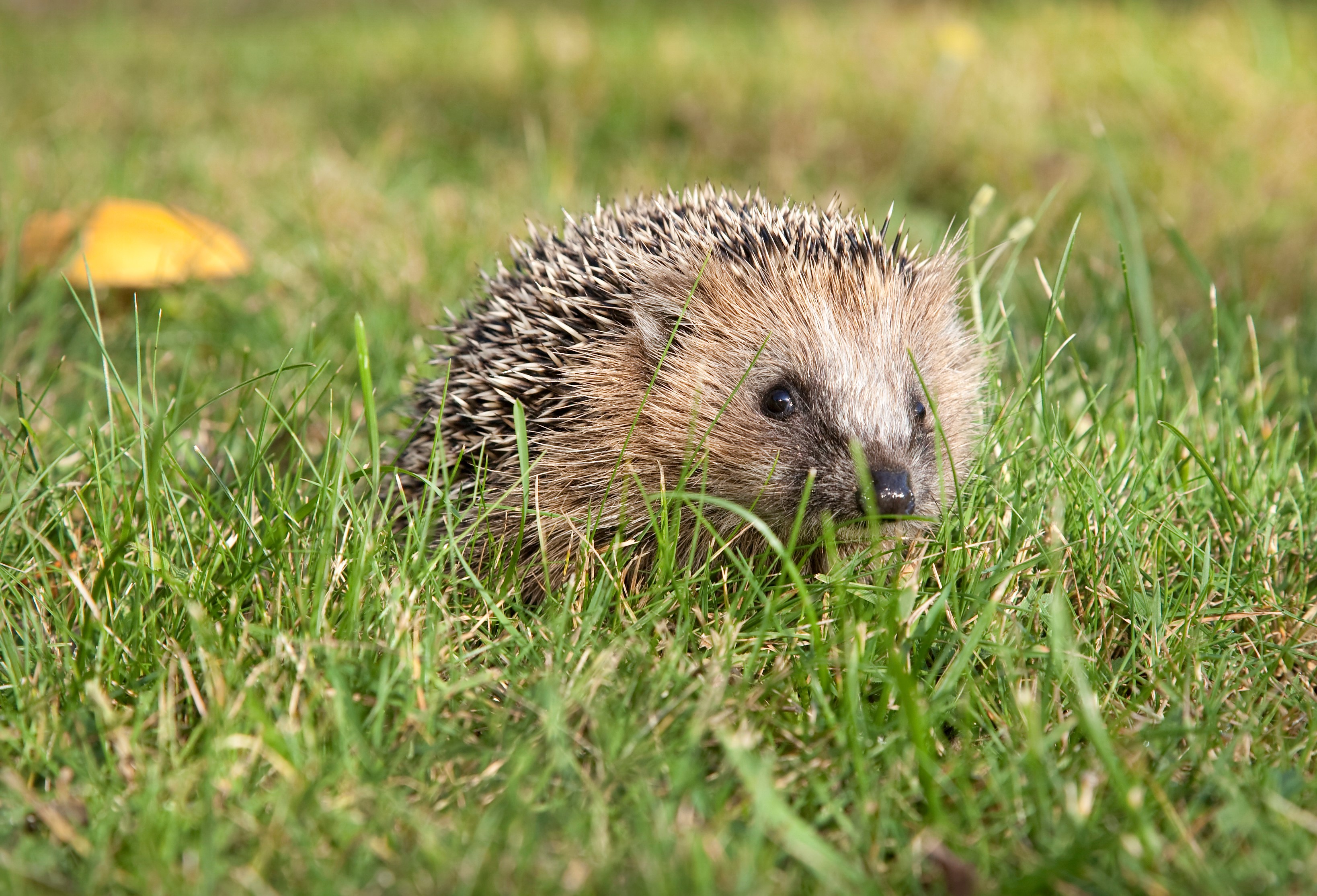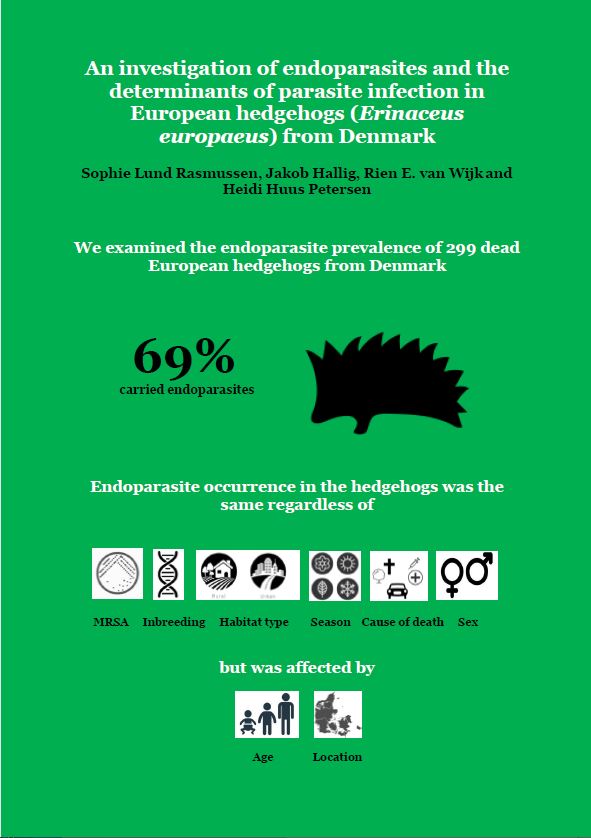News
New research sheds light on the endoparasites of European hedgehogs
Be prepared to broaden your horizons! Research into the wriggling endoparasites of hedgehogs is actually quite fascinating! My colleagues and I investigated the endoparasites of 299 dead European hedgehogs from Denmark and found that 69% of the hedgehogs hosted endoparasites! The hedgehogs used in the study originated from The Danish Hedgehog Project, and due to the comprehensive background knowledge our previous research has provided about the individuals, we were able to test for possible determinants of endoparasite occurrence. We discovered that only age and geography significantly affected endoparasite occurrence. These results indicate a regional difference in endoparasite species carried by European hedgehogs in Denmark. This stresses the need for hedgehogs to be cared for locally when admitted to wildlife rehabilitation centres, and to be released within their area of origin, to prevent spread of endoparasite infections among hedgehogs.
We found that some of the endoparasites that are common in hedgehogs throughout Europe were very rarely seen in the Danish hedgehogs. This is may be due to the fact that Denmark consists of islands and peninsulas and is only connected to mainland Europe via Jutland, which could also explain why we found more species of endoparasites and a higher occurrence of endoparasites in the hedgehogs from Jutland compared to the rest of the country. Occasionally, the parasitic burden in the hedgehogs can become too high, making the hedgehogs ill. They will lose weight, get diarrhoea, have difficulties breathing due to the many worms gathering in their lungs and they will often get secondary infections such as pneumonia due to a high presence of lungworm. These hedgehogs should of course receive treatment in order to survive. However, to reduce the risk of resistance development, the hedgehogs that do not show signs of illness caused by endoparasites should not be treated, as our research indicates that endoparasite infections are common and a natural part of the ecology of hedgehogs. Some of these endoparasites are also infectious to humans, pets and other wildlife species. It is therefore important to keep a strict hygiene when feeding hedgehogs in the garden. We therefore encourage garden owners to clean the feeding bowls on a regular basis and to sanitize their hands after handling the feeding bowls to reduce the risk of transmission of parasites to humans and their pets and between hedgehogs feeding from the same bowls. We conclude that, in line with previous studies of European hedgehogs throughout their range in Western Europe, endoparasite infections are common and a natural part of their ecology.
The article is published in International Journal for Parasitology: Parasites and Wildlife.
Rasmussen, S. L., Hallig, J., van Wijk, R. E., & Petersen, H. H. (2021). An investigation of endoparasites and the determinants of parasite infection in European hedgehogs (Erinaceus europaeus) from Denmark. International Journal for Parasitology: Parasites and Wildlife 16, 217-227. https://doi.org/10.1016/j.ijppaw.2021.10.005







